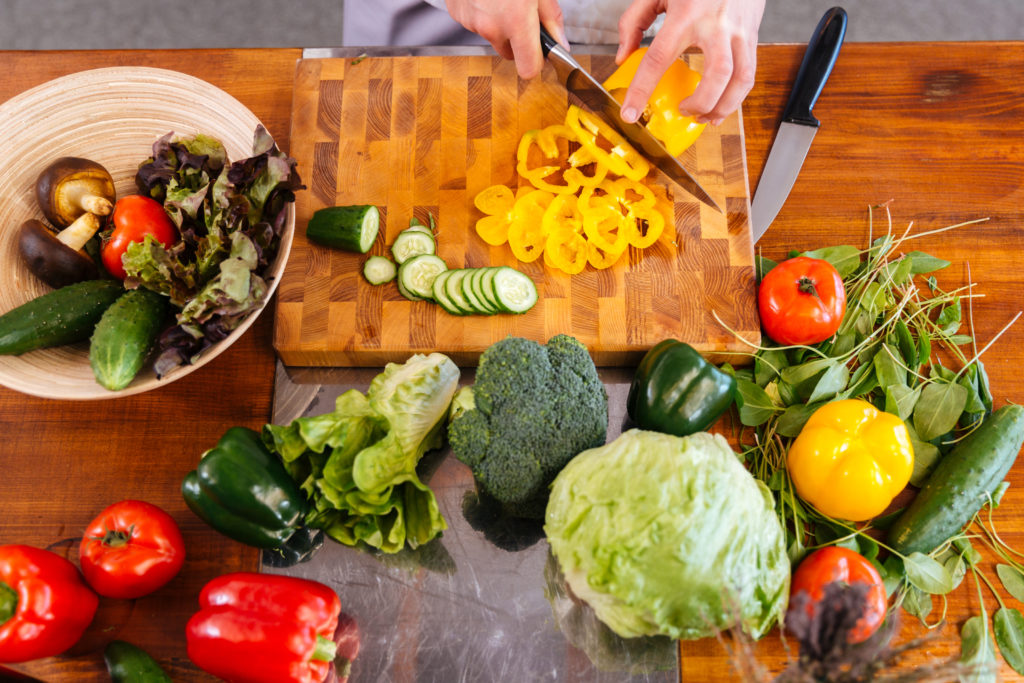Food systems are simultaneously a leading cause of environmental degradation and depletion of natural resources. Currently, food systems are responsible for a significant 20 percent of greenhouse gas (GHG) emissions and are a major driver of land conversion, deforestation and loss of biodiversity. Agriculture alone accounts for roughly 70 percent of global freshwater withdrawals and water pollution and is responsible for 80 percent of worldwide deforestation.
With the world’s population predicted to expand to 9.7 billion individuals by 2050, these environmental impacts do not make current food systems sustainable. According to the most recent report published in 2019 by The Intergovernmental Panel on Climate Change (IPCC):
Consumption of healthy and sustainable diets presents major opportunities for reducing GHG emissions from food systems and improving health outcomes”
The food system embodies a complex chain that includes environmental, social and economic outcomes to provide food that comprises diets. Healthy diets generally encompass dietary goals defined in terms of nutrient adequacy, intake of specified food groups and adherence to a dietary pattern. Sustainable diets, however, are more than the sum of nutrients and foods consumed as they are strongly conditioned by the ways food is produced, distributed, marketed, chosen, prepared and consumed.
According to FAO (2019), the aims of sustainable diets are: to achieve optimal growth and development of all individuals; to support functioning and physical, mental, and social wellbeing at all life stages for present and future generations; to prevent all forms of malnutrition; to reduce the risk of diet-related non-communicable diseases, and to support the preservation of biodiversity and planetary health. Sustainable and healthy diets must combine all the dimensions of sustainability to avoid unintended consequences.
In this context, UN CC:Learn and Danone launched the Sustainable Diet e-course. This course is now translated into Portuguese and aims of helping people decide on choices that can promote real changes in their health and our planet.
Our role is to motivate people, through this food revolution, to make their choices considering the positive impact they can have on their health, on their community and on the planet” – said Edson Higo, CEO of Danone Brazil
The e-course is free of charge and has eight interactive modules which include videos, factsheets, and activities. The course identifies ways in which changing your diet makes a positive impact and invites the participants to develop a personal plan for a sustainable and healthy diet. This e-course is also available in English and you will receive an official certificate after successfully completing the course. Watch the teaser below and join our learning community today! Registrations are open.
What our learners have said:
I have learned how my diet impacts our planet and affects our health, and also how to start eating healthy and sustainably. A truly inspiring course.” – learner from Brazil
The course is amazing! It’s up-to-date, very simple to browse the site, the videos are really well-made, and the factsheets are so dynamic! Also, the completion marks on the activities were a nice way to motivate me to continue doing the course!” – learner from Brazil
As a professional in the health area, I can properly say that this course truly added value in my knowledge. Now, it is on me to act.” – learner from Kenya
I believe that being part of the sustainable food revolution helps us think how our eating habits and daily choices are affecting our health and the planet. I believe that if we all take this course, things would change favorably since we would have the knowledge to make a healthier and more sustainable choices” – learner from India

